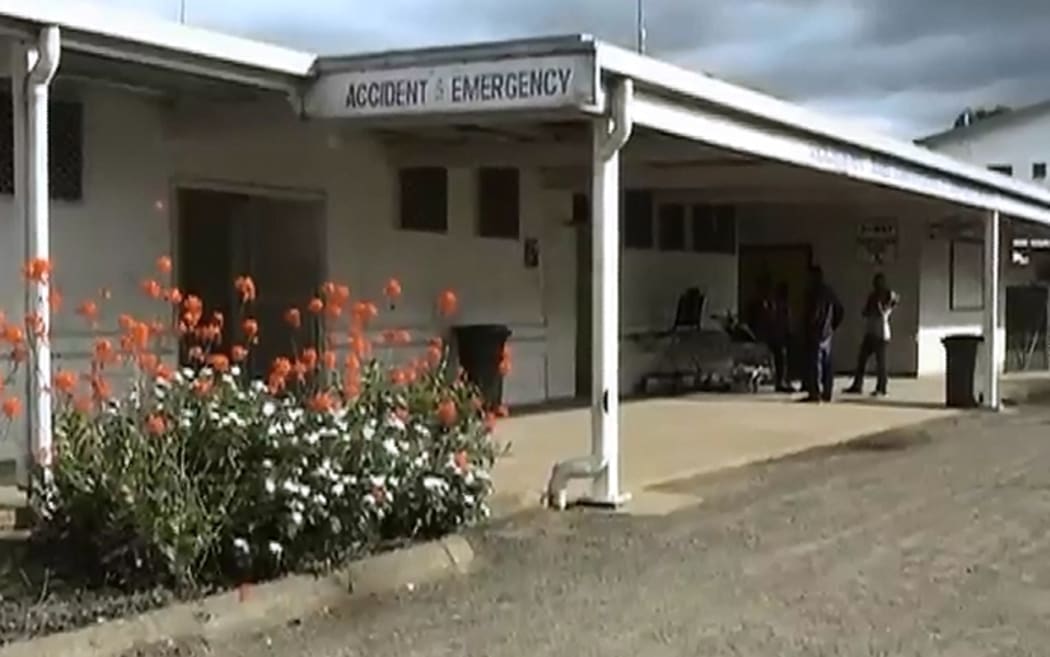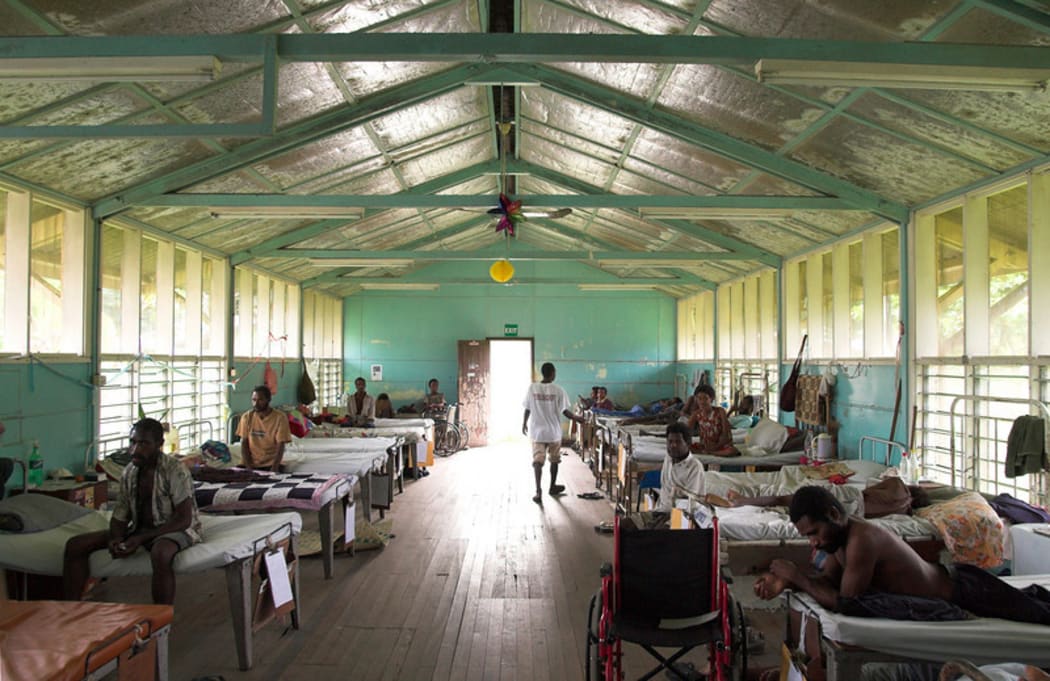On Tuesday night, an elderly woman went to Mt Hagen Hospital after she was slashed in the forehead, but doctors had no supplies or antibiotics to stitch and treat her wound. On the same night, doctors driven to desperation having run out of gauze resorted to using patients' clothes to soak up blood and cover wounds.

Mt Hagen Hospital, Papua New Guinea's third-largest, has run out of drugs and medical supplies as a nationwide drug shortage cripples hospitals around the country. Photo: EMTV
The dire situation at Papua New Guinea's third-largest hospital is a scene playing out in hospitals around the country, where health centres have been crippled by a months-long drug shortage that doctors say has been in the making for years.
"The hospital is actually out of everything," said David Vorst, the deputy chief executive of Mt Hagen Hospital. "We've got doctors and nurses working very difficult circumstances delivering babies, for example, without any gloves to protect them."
The hospital had been struggling for months, Mr Vorst said, as the Department of Health had not provided the funding needed to replenish supplies.
As the supplies that were left dwindled, the hospital was driven to seek unused supplies from remote clinics, aid posts and charities. As they ran out, funds were cobbled together to make up for the money the department wasn't paying.
But that could only last so long and last weekend, the shelves were bare. There were no antibiotics, bandages, IV lines, anything, said Mr Vorst.
On Wednesday, a meeting was held on the hospital's forecourt, where an angry public was told the hospital had nothing available to treat patients at a time when the emergency department was faced with a surge in injuries from election-related violence.
But the situation in Mt Hagen is not unique. The secretary of the PNG National Doctors Association, Sam Yockopua, said many hospitals around the country were struggling to stay afloat.
"About eight hospitals have actually shut down their doors or partly shut down for emergencies only," he said. "At the trend at which we are going, by the end of this month 90 percent of the hospitals will shut down."
The country's second-largest hospital, Angau Memorial in Lae, said it was struggling with shortages, but private pharmacies in the city had enough supplies that doctors were sending patients to them.
In Kokopo, on East New Britain, the administrator of St Mary's Hospital, Albert Seri, said his hospital was backed by church funding, but it was still tough.
"We have not been getting everything that we ordered from the medical store, so what happened is that we were going to local pharmacies to buy drugs, basically, and we have been able to just keep our heads above water," he said.
The crisis in the country's hospitals and health centres had been building for months, if not years, the doctors and administrators said.
In PNG, drugs and supplies are procured centrally by the Department of Health, but many of the country's hospitals have received nothing close to what is needed.
Mr Vorst said Mt Hagen Hospital only received about 30 percent of the supplies it asked for each year, and of that, only about 10 percent of the quantity requested.
"Two months ago at a board meeting, the national Department of Health rep said 'look, we've got 500,000 kina earmarked for you guys, just send us a list'," said Mr Vorst.
"We did - very, very quickly - and in return we got a box of abdominal swabs. That was it," he said.
Dr Yockopua said most hospitals had to find extra money to meet their basic requirements, and that struggle was exacerbated in 2014 when the government introduced free healthcare.
Now, Dr Yockopua said, hospitals and health centres were no longer able to charge a fee to cover their costs, and the government was only paying about 10 percent of what was needed to cover the shortfall.

Angau Hospital, Lae, Papua New Guinea Photo: RNZI
"What they normally charge ... for example for prescription medicines, like one kina for one, or x-ray for two kina, something like that ... now, no fees as such," he said.
"So, effectively [there's] no money generated by the hospitals to buy urgent consumables or medicines."
"Unfortunately the patients are the victims of this, rather than the beneficiaries," said Mr Vorst.
"The way it was implemented without supporting the hospitals to continue to get the drugs that they need is something that could have been managed a lot better."
With the shortage of funding and the inability to introduce any charges, the hospitals' problems were compounded when the Department of Health's tender for drug procurement lapsed in December, leaving the country without a supplier.
"We were supposed to get a new tender in place," said Dr Yockopua. "But we know that in PNG, the tender process takes time, it's complex, it's politicised, it is highly technical, and so it takes a minimum of six months."
But with hospitals on the brink of collapse and doctors threatening to go on strike if nothing was done, the government finally took charge this week.
The chief secretary, Isaac Lupari, said the failure of the public service had contributed to the drugs crisis, not government funding.
"We've failed our people," Mr Lupari said at a news conference, "by delaying procurement and recommending contracts to be given to suppliers."
With that admission, he announced that five new tenderers had finally been approved with pharmaceutical companies and supplies should start to arrive in coming weeks, an announcement that brought a collective sigh of relief.
In Mt Hagen though, there was no time to wait. Mr Vorst said his hospital had managed to gather some money to get extra supplies, which should start to arrive from next week.
"The stocks will start flowing and I expect that will happen for probably four or five days before we're completely restocked and there now appears to be tenders at a national level sorted out so that what we're doing - hopefully - is only a bridging thing where we're buying stuff until the central supply system starts to work again," he said.
But while supplies across the country may slowly start to come back, many doctors agreed the new tenders will only go so far, and much more needed to be done to address the health system's myriad problems.
For one, Dr Yockopua said the tender issue had to be sorted long-term, and promised funding needed to reach the hospitals and health centres from government coffers. And, most importantly, he said the free healthcare policy needed to be addressed and either removed or overhauled.
But in the wards of Mt Hagen Hospital, Mr Vorst said the most important thing patients and frustrated staff needed was a stable, adequate and reliable supply of much needed medicine and supplies.


